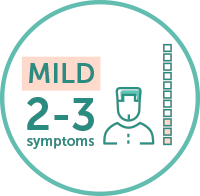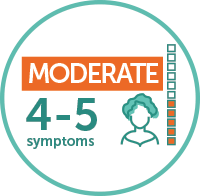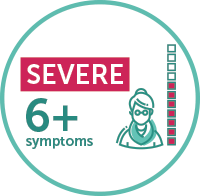
Substance Use Disorder Self-Assessment Tool
Answer a few questions from the American Psychiatric Association's DSM-5, the gold standard for evaluating signs of a possible substance use disorder.
The Diagnostic and Statistical Manual of Mental Disorders (DSM) is a vital diagnostic tool published by the American Psychiatric Association (APA).
This text is considered the gold standard on behavioral health and guides licensed clinicians to investigate, diagnose, and treat disorders, including substance use disorder (SUD). First published in 1952, it is now in its fifth edition, commonly referred to as the DSM-5.
Add up the number of symptoms that apply to find out if it's time to seek treatment.
Taking the substance in larger amounts or for longer than intended.
Wanting to cut down or stop using the substance but not being able to.
Spending a lot of time getting, using, or recovering from use of the substance.
Craving, or a strong desire or urge to use the substance.
Not managing to fulfill obligations at work, home, or school because of substance use.
Continuing to use the substance even when it causes social or interpersonal problems.
Giving up important social, occupational, or recreational activities because of substance use.
Using the substance again and again, even when in situations in which it is physically dangerous.
Continuing to use the substance even when it causes physical or psychological problems.
Needing more of the substance to get the same effect (tolerance).
Developing of withdrawal symptoms, which can be relieved by taking more of the substance.



DISCLAIMER: Taking the Diagnostic and Statistical Manual of Mental Disorders (DSM) 5 yourself or for a loved one/friend/co-worker is not intended to be a substitute for, or to be relied upon as, medical advice, diagnosis, or treatment. Always seek the advice of your physician or health provider.
Addiction Resources
Looking for support? From treatment finders to recovery groups to grief support, browse addiction resources here.
Types of Treatment
Treatment is not one-size-fits all. Learn what services are available for every situation.
Find treatment options
Treatment Atlas is a free and confidential resource to find and compare addiction treatment programs.

